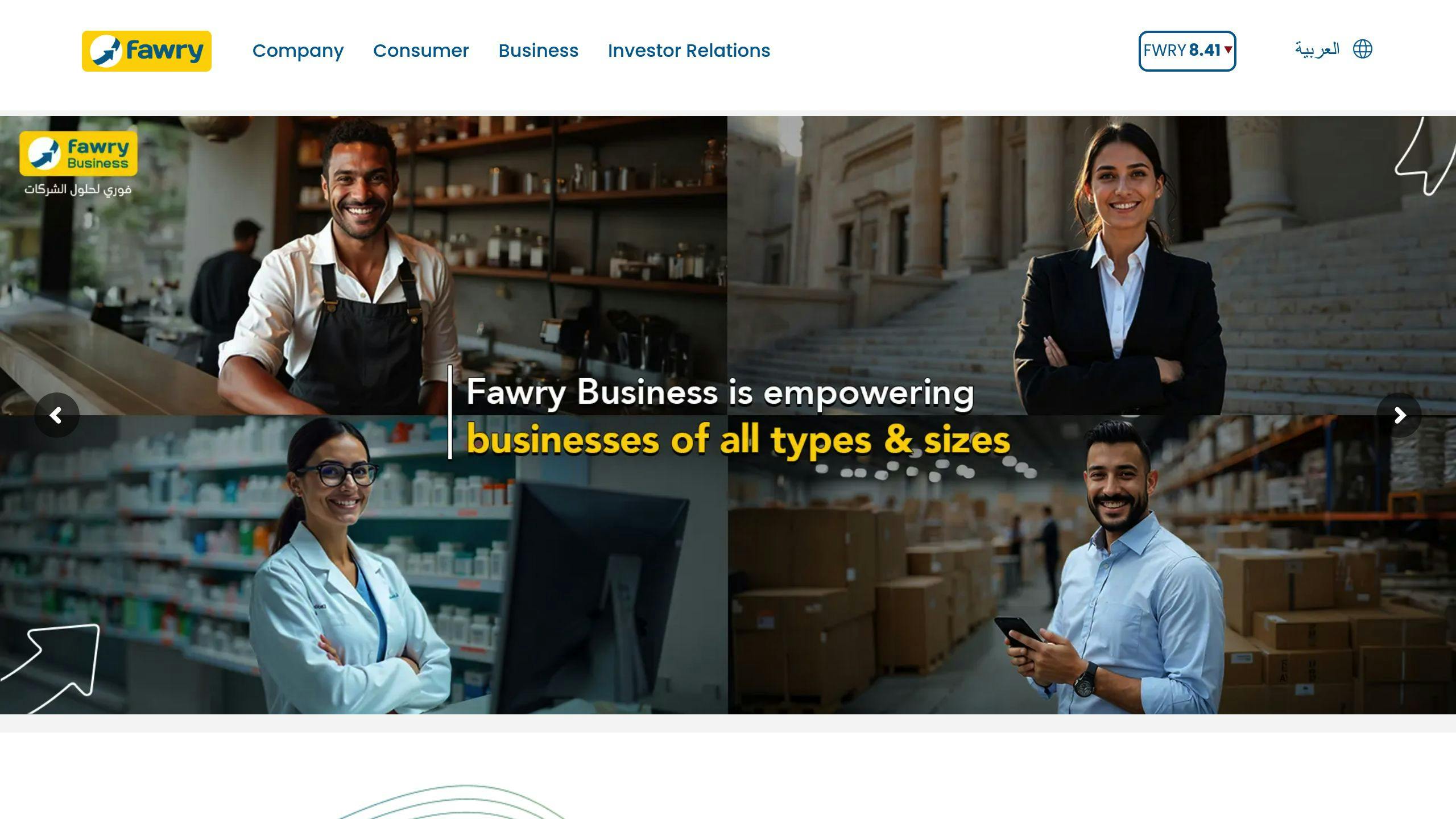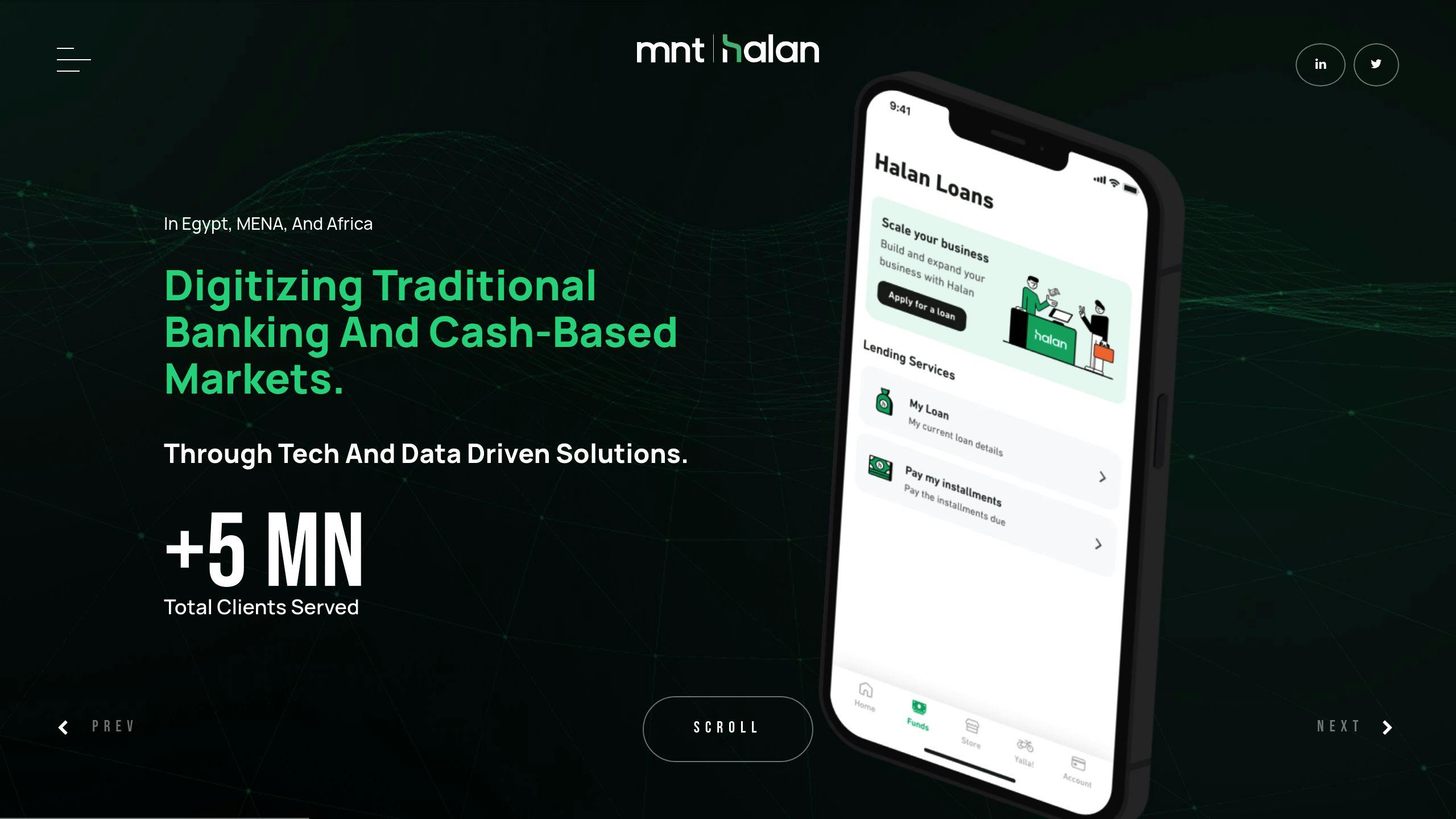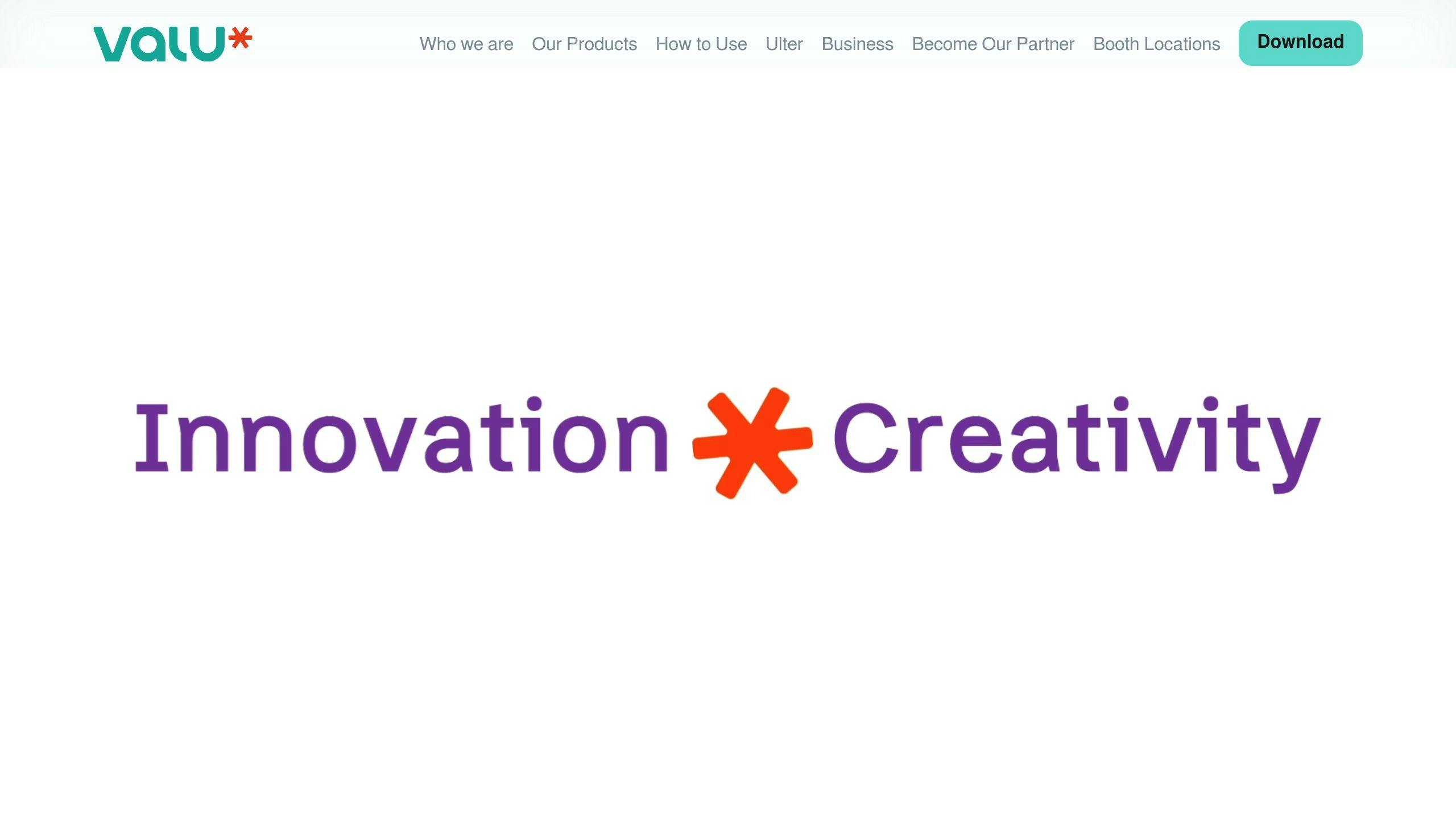Egypt’s startup ecosystem is thriving in 2025, with its ICT sector generating $6.5 billion in revenue, 600+ startups driving innovation, and fintech leading the charge. Government support, tax breaks, and mentorship programs have fueled this growth, making Egypt a tech hub in the MENA region. Here are the top 5 startups reshaping industries:
- Fawry: Egypt’s largest digital payment network, processing 9M daily transactions with services like ‘Buy Now, Pay Later’ and extensive partnerships.
- Paymob: Serving 350,000 merchants, it expands financial inclusion with tools like “Tap on Phone” and collaborations with Mastercard.
- MNT-Halan: Leading microfinance with digital lending and tailored financial solutions for underserved communities.
- Valu: Simplifying consumer financing through its BNPL model, bridging traditional retail and modern digital services.
- Lucky Financial: Combining cashback rewards with financial services, focusing on underbanked users and regional expansion.
These startups are solving local challenges, improving financial access, and positioning Egypt as a rising player in the global tech scene.
Unlocking the full potential of Digital Banking
1. Fawry: A Leader in Digital Payments

Fawry handles millions of transactions daily through its extensive network of 166,500 service points, solidifying its position as Egypt’s largest digital payment network. Over the years, it has evolved from a basic payment processor into a full-fledged financial services platform.
The company’s growth speaks for itself, with a 150% year-over-year profit increase in 2023 [2]. Its ‘buy now, pay later’ service has become a popular choice, boosting consumer financing. A key partnership with PayMe Digital allows expatriates to easily manage their financial commitments in Egypt [3].
Fawry was the first company authorized as a banking agent by the Central Bank of Egypt. Its network spans 300 cities and offers over 1,000 financial services through retail shops, kiosks, ATMs, and post offices [2]. Collaborating with Zoho Corp, Fawry has strengthened its digital infrastructure, further cementing its leadership in fintech.
Through its FawryPay platform, businesses gain access to flexible payment solutions, such as payment links for merchants without online stores [5]. These tools have made digital transactions accessible and secure for businesses of all sizes, ensuring reliability across different regions and channels [4].
“Fawry’s role in transforming the fintech landscape by making digital payments super accessible and its significant contributions to the local economy through its extensive network and innovative services has been revolutionary” [2]
FawryPay has streamlined e-commerce payments with versatile solutions, while partnerships with companies like PayMe Digital and Zoho Corp have expanded its capabilities and strengthened its infrastructure. As Egypt’s first authorized banking agent, Fawry continues to promote financial inclusion with its wide-reaching network and diverse services.
Fawry’s achievements highlight the strength of Egypt’s growing fintech ecosystem, showing how local startups are redefining financial services. As a pioneer in the industry, Fawry paves the way for others, like Paymob, to further advance financial inclusion across the country.
2. Paymob: Expanding Financial Inclusion
Launched in 2015, Paymob has become a major player in Egypt’s fintech scene, supporting nearly 350,000 merchants across the MENA region. Its omnichannel payment gateway allows businesses to accept over 50 payment methods, helping both banked and unbanked populations access financial services [2]. This growth highlights Egypt’s thriving fintech ecosystem and startup-friendly environment.
With a $72 million Series B funding round, Paymob has expanded into markets like Oman, Saudi Arabia, and the UAE. This funding also enabled a collaboration with Mastercard to provide affordable digital payment solutions for MSMEs. The partnership aligns with Mastercard’s global goal to digitize 50 million small businesses by 2025 [2].
Paymob offers tools such as Tap on Phone technology, payment links, and smooth e-commerce integrations with platforms like Shopify and WooCommerce [2]. These features help small businesses overcome traditional financial hurdles.
Another key focus for Paymob is creating digital financial footprints for unbanked users, a crucial step in a country like Egypt, where digital tools are essential for improving financial accessibility [2]. Under the leadership of CEO Islam Shawky, the company continues to grow, supported by Egypt’s favorable regulations and new tax benefits for startups.
Looking ahead, Paymob plans to roll out advanced services like lending options, enhanced settlement systems, and embedded checkout solutions [2]. As it pushes financial inclusion across the MENA region, other startups like MNT-Halan are also reshaping microfinance in Egypt.
sbb-itb-dd089af
3. MNT-Halan: Transforming Microfinance

Led by CEO Mounir Nakhla, MNT-Halan is reshaping microfinance in Egypt by combining digital tools with traditional financial services.
Since launching, MNT-Halan has reached impressive milestones, distributing over EGP 30 billion in loans and serving more than 5 million customers nationwide.
By using digital platforms, the company cuts costs and improves access to financial services for underserved groups. This approach has made MNT-Halan a trailblazer in Egypt’s fintech scene, breaking down barriers in microfinance through technology.
Key Services Offered by MNT-Halan
| Service Category | Description |
|---|---|
| Digital Lending | Automated approvals with fast disbursement, reducing processing time from weeks to hours. |
| Microfinance Solutions | Tailored loans with flexible terms, making financing more accessible for small businesses. |
| Financial Inclusion | Digital wallets and payment tools, improving access for unbanked populations. |
MNT-Halan’s efforts have not gone unnoticed. The company was named “Best Fintech Company in Egypt” at the 2022 Global Banking & Finance Awards. Partnerships with global organizations have also bolstered its presence in the market.
With its focus on innovation and reaching underserved communities, MNT-Halan is driving fintech growth in Egypt, where the sector is expected to grow at a 20% annual rate through 2028.
While MNT-Halan leads in microfinance, Valu is making waves in consumer financing, further shaping Egypt’s dynamic fintech industry.
4. Valu: Transforming Consumer Financing in Egypt

Valu has become a standout player in Egypt’s growing fintech scene by addressing a key need in consumer financing. Founded in 2017 by Walid Hassouna, the platform simplifies access to financing for everyday purchases through its BNPL (Buy Now, Pay Later) model, offering a practical alternative to traditional banking.
The platform works seamlessly with merchants across various industries, including electronics, furniture, and healthcare. Its transparent fee structure – free of hidden costs – makes it appealing to consumers who might find conventional banking options out of reach.
Valu has effectively connected traditional retail with modern financial services, carving out a strong position in Egypt’s dynamic fintech market. By focusing on providing flexible financing options, especially for underserved consumers, the company has earned a solid reputation as a trusted brand.
With a firm commitment to risk management and compliance with Egypt’s financial regulations, Valu has gained the confidence of both consumers and merchants. This balance of innovation and accountability has allowed the company to grow steadily while contributing to the country’s shift toward digital financial solutions.
As demand for flexible payment options continues to rise, Valu is well-positioned for further growth. Its ability to combine user-friendly services with regulatory adherence sets the stage for expansion in the coming years. Meanwhile, other startups like Lucky Financial are enhancing the ecosystem by streamlining rewards and payments, adding even more momentum to Egypt’s fintech sector.
5. Lucky Financial: Simplifying Rewards and Payments
Lucky Financial is reshaping Egypt’s digital rewards and payments landscape with a system that blends cashback rewards and financial services. This approach highlights the fast-paced growth of Egypt’s fintech sector, supported by progressive policies and technological advancements.
With 8 million users, 30,000 merchant partners, and 280,000 monthly transactions, Lucky is meeting strong market demand. They’ve achieved a 250% year-on-year growth in gross merchandise value, showcasing their impact in the market.
The “Lucky One” card, created in partnership with Mashreq Bank, Meeza, and MDP, offers up to 5% cashback along with features like bill payments and withdrawals. This makes financial services more accessible, especially for underserved communities.
“Lucky’s mission is to support the fintech ecosystem; and to bring a seamless shopping, saving and payment experience by providing the underbanked users with the banking experience that they never had before”, says Ayman Essawy, Co-founder of Lucky.
Through a partnership with AMAN, Lucky has introduced buy now, pay later (BNPL) options, extending credit access to consumers who were previously excluded from traditional credit card services. This aligns with their goal of improving financial inclusion in Egypt, where around 67% of the population lacks adequate access to financial services.
Their $25 million Series A funding round, led by Nclude and key national banks, is fueling their plans for regional expansion. Already operating in Morocco, Lucky is steadily extending its financial solutions across the MENA region.
Lucky Financial’s growth and approach underline the transformative potential of Egypt’s fintech industry, paving the way for a wider regional impact.
Conclusion
Egypt’s startup ecosystem is experiencing rapid growth, signaling a major shift in the nation’s digital economy. The ICT sector’s $6.5 billion revenue – accounting for 5.8% of the GDP – shows how vital startups are to Egypt’s economic progress. Backed by government policies and innovation hubs, these businesses are thriving and drawing global investors, even in the face of challenges like 32.5% inflation [1][2].
Startups are making a real difference by improving financial access and driving digital transformation. Take Fawry, for instance: with 225,000 service points and 3.06 million transactions processed daily [2], it illustrates just how impactful these companies can be. By solving local problems with scalable solutions, these startups are not only changing lives in Egypt but also setting new standards for the MENA region.
This momentum goes beyond individual businesses, positioning Egypt as a rising force in the global tech scene. With a combination of government backing, growing interest from international investors, and a pool of talented entrepreneurs, Egypt’s startup ecosystem is set to keep growing. As these companies expand and innovate, they are cementing Egypt’s role as a leading tech hub in the Middle East and Africa.









